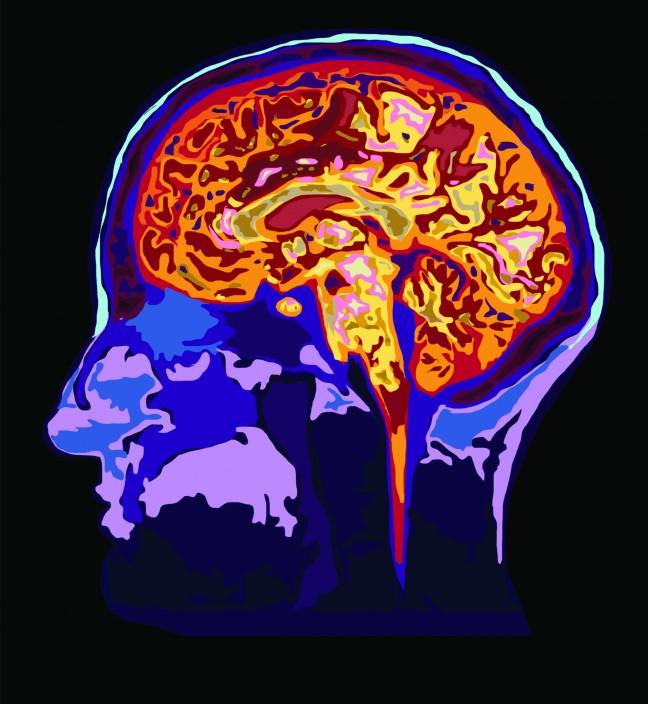Editor’s note: Debunked is a science news series that focuses on dismantling common myths and misconceptions with the help of UW experts.
In many ways, our ability to study the brain is a true feat of scientific advancement, yet a lot remains unknown about the mysteries of the brain. Still, one thing is no mystery to psychologists — humans use far more than 10% of their brains.
The idea that humans only use 10% of the brain is one of the most commonly propagated myths about the brain that just doesn’t seem to disappear, according to psychology professor C. Shawn Green.
“You know, the fewer people that believe it, I think probably the better,” Green said. “It’s one that I think misses the point about what we could do with our brains. It’s ‘we’re not using it’ versus ‘we could be using it more’ I think is an important distinction.”
While many may believe the 10% myth, modern technology allows for brain measurements to prove it wrong. If the myth were true, 90% of the brain would be dormant in electrical activity measurements of the brain, Green said. But this is not observed, as almost all of the brain is active, even when under anesthesia.
According to Green, the brain uses around 25% of our oxygen, so it wouldn’t be reasonable to use that much oxygen on such a small part of the organ. From an evolutionary perspective for the species, “it would be a little bit silly,” Green said.
“It’s not remotely 10% of their brain that is active,” Green said. “It’s a huge portion of the brain that’s active when they’re doing something complex, like playing video games.”
Part of the reason this misconception rings true with people could come from the idea of falling short of their potential, Green said. While many people may be savants in various areas, it may be comforting to think everyone has that potential.
Green said this myth could track back to a few different origins. One potential source is a misinterpretation of the words of William James, one of the more seminal figures in the field of psychology, who essentially said that human beings don’t reach their full physical and mental potential, according to Green.
The 10% myth could also be related to different types of cells in the brain, Green said, as some of the cells classically thought of as just support cells are showing more functionality than just support.
UW team maintains 20-year streak in international programming competition
Another potential source comes from instances of sizable brain damage that would have consequences which don’t reveal themselves without testing for them.
Regardless of the origin, this misconception has persisted for many years. This myth could be related to a well-understood phenomenon in psychology called belief perseverance, Green said, which occurs when a person believes something and it’s nearly impossible to erase the belief.
“Once people have come to believe something it’s almost impossible to debunk it, like for it to completely go away,” Green said. “They’ll think okay, maybe it’s not 10%, maybe it’s 15%. Nope, not that either.”
















